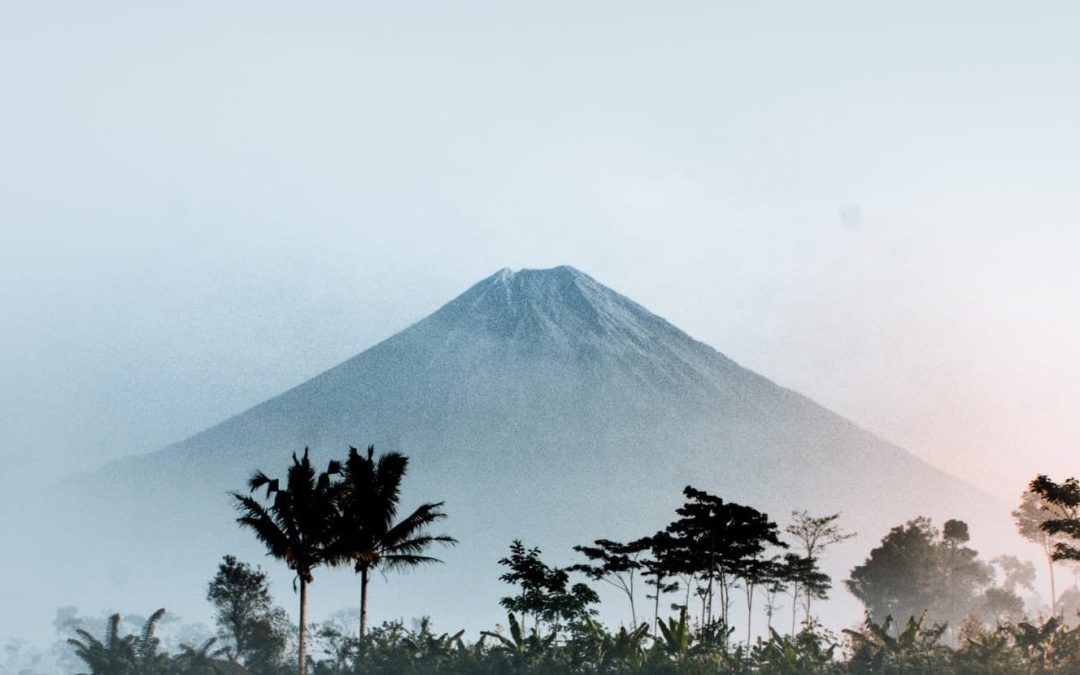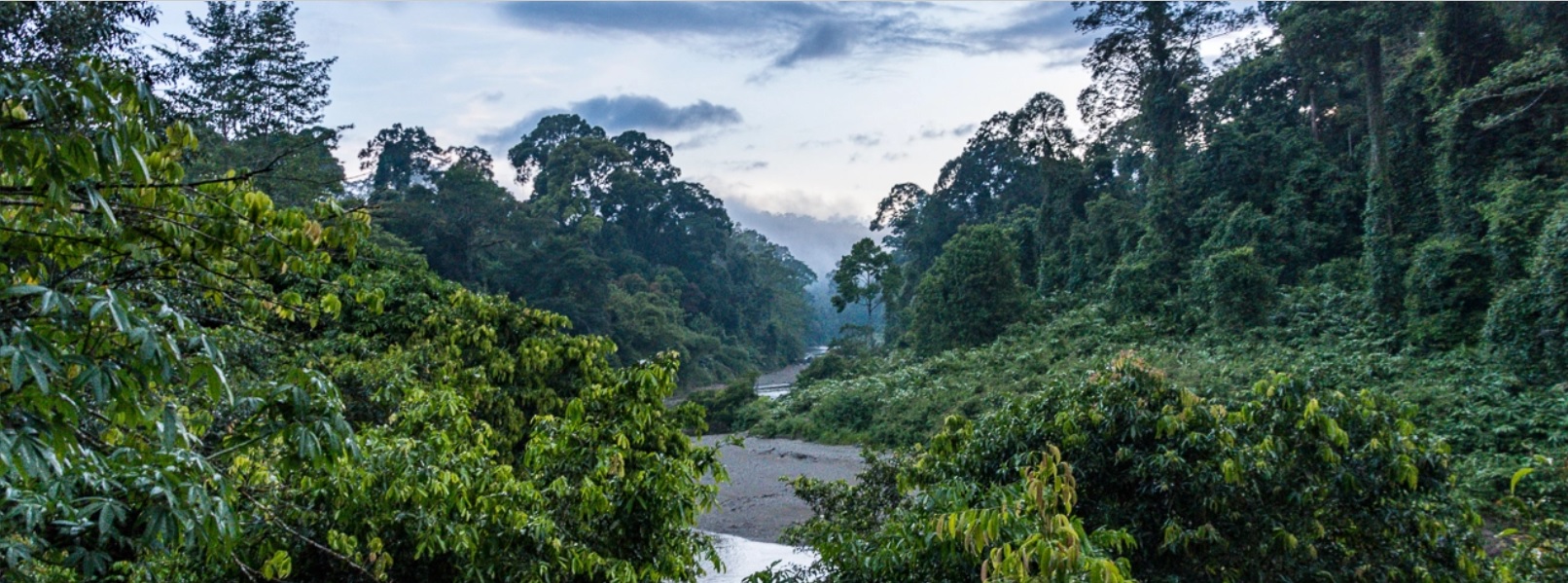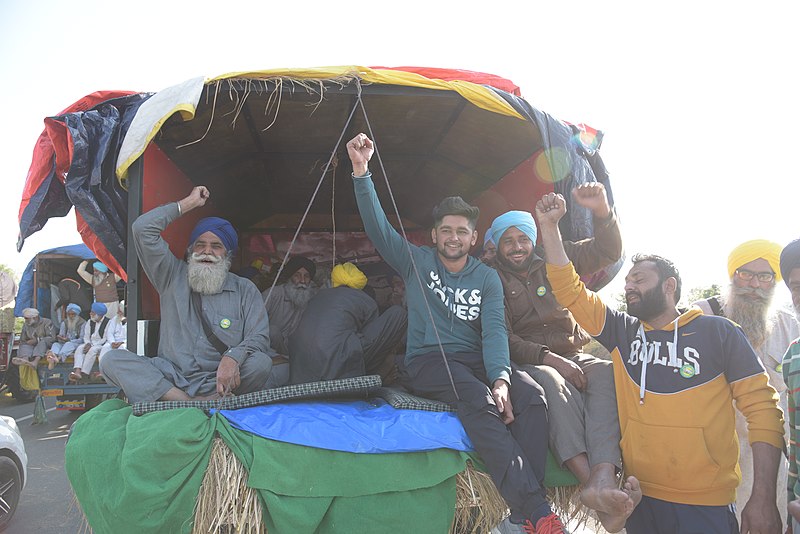The Covid-19 pandemic, lethal as it is, is instrumental to capital’s assault on the living world. Looming through the terrors unleashed by free-flying strands of DNA are gargantuan infrastructural projects, including medical, green and digital. These are intent on destroying the web of life. Out of this extermination project, will spew more illnesses, disorders, infections, infestations, and devastations.
I urge us to address the relation between the militarised-capitalist-supremacist mindset and the living body of the earth. The latter includes you and me, our beloved human families, friends, communities and peoples, and also our non-human kith and kin. In this essay, I refer to the former as The Patriarch.
~~~
An active extermination event is at large, distinct from previous mass deaths of species through passive geologic processes. The current event involves slavery, ecocide and genocide. To understand Covid-19 while this is going on, would be like trying to understand a friend or family member’s 0.05% chance of dying from a natural ailment, when there is a psychopath with a shotgun in the room.
Domination, disorder, disease, debilitation, torture, slavery, unhappiness, fear, addictions, death and decay are essential for The Patriarch. Assembled from the reconstituted bodies of the living world, with extermination intrinsic to his existence, he will not stop until he consumes all. Ecocide and genocide are his mission.
The fundamental driving force of capital, I believe, is the imperative to conquer all life (including human bodies, hearts and minds). Unless this is negated, we cannot nurture the more subtle aspects of the enduring relationships between humankind and other-than-humankind.
While The Patriarch reduces many persons to touchscreen modalities, he confines and debilitates others. He even suffocates entire populations in the gas chambers of modern civilisation – the polluted cities – and burns others in wastelands resulting from the furnaces of his industries.
This kind of extermination has been going on for a while, perhaps since about 1492 when Europeans gifted smallpox wrapped in blankets to native Americans. Some people think it began way before, during the birth of civilisations – of militarised-hierarchical-extractive entities distinct from the myriad small cultures growing slowly over millennia in sustaining land bases. I find the nature of capital, particularly technocratic-militarised capital, egregious to a new extreme. The Patriarch is insatiable. I also believe he is insane. He has begun to devour his own body.
~~~
I am a conservationist living in a community in the rainforests of the Western Ghat mountains in southern India. I protect endangered species, restore rainforest habitat, and educate youth. We are many women in this place. Together with the men who also live and work here, we have an intimate knowledge of the plants and animals who create this biome, who are all sovereign beings in their own right.
These non-humans – or other-than-humans – also give us our foods and medicines, our ecologies and cultures, our material and immaterial bases. In return we try to protect them, nurture them, and see them through these terrible apocalyptic times. Together we work on a collective ecology, acknowledging our inseparableness from each other in the web of life. We are deeply intertwined through our physical beings: our cells, juices and tissues, our senses, limbs and nerves, and every organ and follicle. Through our bodies we create cultures, biomes and ecospheres. All these are being exterminated by the toxic forces of technologised-capitalistic patriarchy.
It is indeed my deep and fervent wish to examine the work of an unsee-able, unknow-able micro-being on humans. But I believe this will never be wholly known, and certainly not in a reductive way. Reciprocal mutualistic relationships rooted in interbeing grow in intimacy while remaining free and wild. They are like a dance between creatures – between men, women and others; adults and children; humans and nonhumans; between plants, animals, fungi, clouds, winds, rain, rocks, mountains, algae, forests, grasslands and oceans. This mutualism includes viruses, and the SARS-CoV-2 virus, too.
However, I believe the pandemic needs to be examined in the infernal light of omnicide (planetary to cellular). We cannot afford to ignore the background to the viral outbreak. We cannot forget the various “cides” that are going on – ecocide, gynocide, bactericide, fungicide, vermicide, infanticide, weedicide, genocide, climate-cide – and even cosmocide, the destruction of a cosmic body, the planet.
We are not at the beginning of a catastrophe, as the climate-mongers will have us believe. Rather, we are already towards the end of an altogether incomprehensible horror. The orchestration of capital through this pandemic threatens further the direct perception of The Patriarch’s endgame. He wreaks further havoc on his hapless slaves through various fear tactics. He exerts his enormous machines on all his subjugates such as indigenous peoples, marginalised classes, races and castes, women and children. He deploys them on the last forests, waters, winds and habitats. All the above, human and non-human, are swept under the rubric of “resources to be managed”. He also invents new enemies from the very body of the earth which sustains him, like the SARS Corona Virus.
~~~
As an ecologist serving the rainforests of the Western Ghats, it has been my lifelong enquiry to look at how a biome can recover from assault – from colonial-neocolonial-capitalistic-civilisational assault. I know, and the biome knows, that it can heal from most travesties and injuries, and that it will do its utmost to replenish itself and the planet. But the opposing faction, which for the moment we are calling The Patriarch, is gathering momentum. For the arsenal he has accrued – an arsenal built and assembled from the living body of the planet – is in fact, simultaneously disassembling, as he is now also turning on himself. He is running out of other resources.
In this utter disconnect, a monstrous creature devouring himself, he further debilitates humans and non-humans and the living community of earthly existence. He is not open to reason, though he sounds like he is. Nor is he open to life, though he needs it and appropriates it, particularly its very metabolic and life-engendering powers. Saying he is allied to the natural world, he severs himself from it in manifold ways. It doesn’t take much to see that The Patriarch’s language alienates him from his own body, and the body of the earth and the people. His actions separate him more and more from humans and non-humans, without whom he would perish in an instant.
There is no doubt, for me, that The Patriarch’s machinery must stop. My sincere observation is that only non-humans will stop him. Humans are at a gun point more insidious than what non-humans face. Non-humans are not hooked as humans are to The Patriarch. None of the other species – the ones within us and the ones without, those who inhabit our human bodies (the micro-biomes and macro-biomes without whom we could not even have a so-called human existence), and those whose bodies within which we dwell – none are dependent on him. They don’t need him for anything.
~~~
As of this writing, 0.05% of the human population has died from Covid, according to the WHO. The BBC news earlier this week said another half-million people in Europe will die by next year, unless vaccinated. If the data are to be believed, and if the projections are to be trusted, perhaps 5 million people will die altogether from Covid-19. We must do everything to prevent such a terrible thing. Of course. But, critical to recovery of humankind from its various acute and chronic ailments is a return of habitat, of clean air, and clean water, and nature-based relationships for humans to dwell amongst. The cleansing of lungs and livers and other organs, the opening of the senses, and the revival of rivers and wetlands, oceans and aquifers, and the vast ancient forests and human-non-human relations requires The Patriarch to be stopped. Humans are more dependent on all these than we are on The Patriarch. Whom to choose? The Patriarch, or life?
~~~
I’ve heard it said that the virus has no moral brief, but the starker reality is that it carries with it a potent ecological brief, a message saying that unless the world is fecund again, pandemics will speed up the obliteration of the human species, itself a marvelous creation of nature, already weakened by war, by generations of slavery to capital, by poison and dead-numbing effects of digital weaponry, radiation, forced migration, wage slavery, mental anguish and terrible violence on women, children, people of colour and indigenous peoples – all required by The Patriarch as cogs in his capitalist-industrial-technocratic machine.
~~~
The virus, invented in a laboratory or not, is a biological entity that enters human bodies, causes symptoms as it goes about its own mission, propagating itself, tangling with host genomes, creating new conditions, challenging us in its own way, and like any infection, or deemed infection, it pushes our immune systems. Other viruses create other conditions, many of which are beneficial. Overall, the benefits outweigh the diseases.
The virome consists of vast assemblages of viruses in each and every body, habitat and biome. It surrounds us, fills and subsumes our every thought, breath and action. Viruses are the most abundant biological entities on earth. They make us who we are. Like with every aspect of the living cosmos, much of what happens is beneficial, and viral life seems to beget more life, creating our genetic identities. Evolutionary studies show that all life begets more life, despite the occasional disruption or cataclysmic event.
~~~
If invented, then the virus is not different from other invented beings, like dog breeds, plant breeds and even the eugenist caste creations, where, through exercise of a supremacist caste or class’s control, another caste or class or creature’s love, life and passions are harnessed, culled, consumed, engineered, enslaved, extorted, and artifacted to serve the supremacist project (factory farms, factory labour, pet industry, plant industry, monoculture agriculture, industrial fishery, dams-on-rivers, humans-in-slums, human trafficking, domestic labour, untouchable peoples and many more forms of subjugation).
~~~
Domesticated dogs go feral sometimes. They attack people sometimes. The dogs get impounded, spayed or killed, and there is a furor for a while. Domesticated plants go feral sometimes, usually after generations of breeding and enslavement, or after a natural disaster, like a volcanic explosion, or the desertification caused by modern civilisation. They, too, seem to invade territories controlled by humans for other purposes, including other plants deemed more useful. The new problem plants get weedicided, eradicated, and turned into biomass for some other project. This phenomenon gets new names, such as “the science and practice of invasion biology.”
Humans too, go feral, sometimes. They try to take back the control and agency they were systematically denied. They become targets of world leaders and other supremacists.
Now the virus is going feral. Viral. The solutions to this are confinements, containments, fear-mongering and authoritarian technics such as lockdowns and mandates regarding vaccines.
In all these instances, the aggressors, the hosts, the pathogens and the victims are actually contingent to the projects of The Patriarch. Besides, we all know that this virus and its quick evolving progeny can beat any vaccine. We all know The Patriarch needs the virus, the vaccines and human beings.
The Patriarch needs life for all his projects. It is his own dependency on human and non-human others, that he hates more than anything else. Would that we were all machines! He would not be so burdened, guilty, tormented. Machines can be turned on and off, in an instant.
~~~
During the lockdowns, the stopping of vehicles affected every human and non-human. A great number of humans were corralled in. There was no traffic. Other humans and non-humans surged onto streets. The exuberance of the latter offset the tragedy of the former (people desperate to get home). Many studies show that when air, water and land traffic stopped, biodiversity increased in most areas. This was true in our home in the Western Ghats too. Freshwater life had a reprieve from the pesticides washing into the streams and rivers. Insects bred unhindered by insecticides (momentarily unavailable because of the collapse of supply chains). Everywhere, people started gardening in balconies and yards, while others returned to hunting and foraging. Although this hurt some non-humans, overall, it was a return to another kind of life, and a far more direct existence. In the forest, friends reported seeing animals come closer, and they also reported some increase in illegal hunting. Men forced to take to the gun instead of the shopping bag. Men have always hunted for food. Now this ancient way of living is illegal only because The Patriarch legitimises another kind of degradation; the devouring of the land by his forces to feed his industrial systems and machines, including the slaves that work them and now wholly depend on them.
Actual human impact on this forest, man to tree, man to river, women to plants, people to the commons, is minimal compared to the post-Hiroshima assault on the whole biome. We cannot equate hand to hand combat to the unleashing of a nuclear or chemical arsenal, like Round up or Endosulfan or Agent Orange. Or the arsenal of earth-moving machinery.
~~~
I’ve heard that whales could once again hear each other sing underwater during the lockdowns, because of the reduction in ocean traffic. Friends say Olive Ridley turtles increased in certain coastal areas for a brief period, because of a near complete halt in trawling and netting. Air pollution dropped because of the grounding of aircraft, and great murmurations of birds could fly freely without hindrance from war planes and cargo planes and passenger planes. I know from my personal experience that I could walk through the streets of Bangalore without my eyes smarting from pollution, and I saw more birds and butterflies in the city than ever before. The resilience of life is obvious. It’s possible to see what it is capable of all the time.
I know the resilience of my own body, of human beings, non-human beings and of the great earth herself.
~~~
The increase in human numbers by over 4% in this same period overshadows the effect of one life form on another, but is not mentioned. However, human will is even more broken and hijacked by the Patriarch’s projects, by capitalism. Furthermore, the increase in other kinds of machines, industrial infrastructure and invasive medicine (all wreaking ecocide or genocide somewhere in the world) pales, in turn, the effect of the increase in human numbers, and even more the effect of one little, invisible life form on some of humankind.
I also heard that young people turned suicidal, and that mental illness rose during this great human confinement, another term for the lockdowns. Already estranged from the rest of the cosmos, modern humans are even more lonely. Indigenous people know the antidotes to loneliness and breakdown are communities of humans and non-humans. The Patriarch and his henchmen divide millions more from their loved ones while they live and also while they die. I cannot think of anything more terrifying than this.
~~~
As a rainforest activist, it is my daily work to find alliance amongst humans and non-humans to stop further assault. This is no simple task, as most humans see the so-called benefits of capitalism as great, and that life has never been so good. The assault on their bodies through the toxification of the environment, which has led to severely compromised immune systems – a necessary precondition for new diseases to run rife – is unperceivable, because of clever filters in place, addictions, and the numbing effects of petroleum-based lifestyles. Most people are hooked to modern capitalistic systems as providers of life, healers of disease and rescuers from death. A capitalist technocrat is like God. He is a life-giver and a death-controller. He can also assuage, deprive, save, confine and kill in the name of God, or science, for whatever he considers to be the greater common good. To which we are all subject. To which we cannot say no. This great hijacking of the human will is the horrific achievement of the pandemic.
So I seek alliance amongst those not yet wholly hijacked.
~~~
As a rewilder and restorationist, it is my sworn mission to salvage the ones burned, maimed, poisoned or reconstituted from the living earth by the fires of industrial civilisation. My friends, comrades and I run refuges for non-humans, and also humans. We see the need for safe houses, halfway homes, and intensive care units for our plant and animal kith and kin, and also for women, children, marginalised and indigenous peoples, and anyone wishing to break free from The Patriarch’s projects. We need every possibility to regroup and re-enter relationships where humans and non-humans can support each other, so that we may resist the last onslaughts. I find rewilding to be a worthy vocation.
As a member of the web of life, of the still substantial community of life, I try to unravel the effects of one member of this community, the virus, on another member of this same community, the human being. Unfortunately, without addressing the mission of The Patriarch, of omnicidal capital, we cannot examine our true relations with our non-human kith and kin.
~~~
Humans are slaves to The Patriarch. So is the great planet with its winds and lands and waters with trees and elephants and butterflies. So are the forests of my region. The Patriarch needs us alive and needs us dead for his project. It’s a real question how liberation will come. With a domination imperative unique in the entire life of the cosmos, he needs dead wood and living wood and feral wood (ecosystem services of forests). He needs dead water and living water and feral water (for irrigation, tidal and hydropower). He needs dead wind and living wind and feral wind (for air-conditioning, ventilators and turbines). He needs dead plants and animals and living plants and animals and feral plants and animals (for food and medicines and now for climate-saving biodiversity). Now he even needs dead fungi and living fungi and feral fungi (for more biodiversity). He needs dead viruses and living viruses and feral viruses (for evolution and now for vaccines and the great global reset). He needs dead humans, and living humans and feral humans (for research, trade, war and terrorism and slavery).
~~~
I see Covid-19 as a project of The Patriarch, of supremacist powers in the ruling class destroying people and saving people. Our lives are clenched in their hands. They have become the arbiters of human-non-human community, of the very web of existence. They give life, and they take away the foundation of life, through creating new hooks and needs. At the same time they destroy genuine relationships and our capacity to remember what the land was once like. However, because life is as powerful as it is, and because the forests are as resilient and fecund as they are, the world leaders and technocrats aim to harness life’s myriad powers for their projects. Where before they sought land, spices, plants, animals and slaves from the global South, and wood, water and minerals, now they hunt ecosystems and planetary forces (tides, sunshine, clouds, biomes (evolution itself) and slaves everywhere. It is the exuberance and wholeness of life that they seek to devour to fuel their existence.
~~~
I am witness to the land coming alive every moment of every day, so I know the full powers of life are still working. Life’s fecundity is unstoppable, it surges under every type of condition. Like the pigs in factory farms who have babies under impossible conditions, or men and women growing families during war, or forests having baby forests even when the whole climate is shifting, life creates life all the time and everywhere. The ever-entwining forests and winds and waters, with their immense creative forces, both tantalise and threaten The Patriarch, because life achieves with joy and felicity what he cannot ever do. He cannot create life yet, he can only try to force it to create itself. Whether under gun point or nuclear blasts, or dioxins in the cell of every creature, life is the regenerative force he wishes to tap into. Genetic and geologic engineering are only steps along the way.
~~~
I, too, am a creature of nature. Endowed with a particular passion, a wonderment of what this alive, half-alive, wild, half-wild, feral, domesticated, enslaved, tortured way of existence is. Aware that I am a part of all this through my body, my mind, my senses and other faculties, I experience inter-being in everything I do, everything I am, in every aspect of my body-being. I cannot even call it mine, as I feel the work of the forest through the lungs, and the skin and the gut and the mind of this body, itself a biome of sorts. This is the awakening from the nightmare that happened after some years of living here. I came alive to the undeniable truth that we are all inextricably intertwined. That ecology is the non-negotiable, ever-vital matrix in which I am completely held. That I also take part in it, through every action, and non-action, even in my sleep and dreams. As I awoke to The Patriarch’s shadow project, I awoke to the natural world’s life engendering service. Ecology makes more of itself and lives and thrives upon itself. Capitalism, the latest and most devastating avatar of patriarchy, and of ego, makes more of itself and lives and feeds upon its now disassembling self.
~~~
The Patriarch forms himself not in the image of some god; he tries to gain advantage to himself through the exuberance of life. His ego needs our eco.
However, he is a toxic mimic, imitating the form of creation but not its content. He is bent on destruction; total annihilation.
Unlike life. She lives and thrives through community and love and joy and play and inter-being and fecundity and beauty.
~~~
In solidarity with Kurdish women in their extraordinary mission, and through these thoughts, joining the clarion call for Life to overrun the patriarch wholly: to dismantle every cog and wheel of his stupendous machine. Let’s unhinge him. Let’s ally with eco, not his insufferable ego!
Suprabha Seshan is a rainforest conservationist. She lives and works at the Gurukula Botanical Sanctuary, a forest garden and community-based conservation centre in the Western Ghat mountains of Kerala. Her essays can be found in The Indian Quarterly, The Indian Express, Scroll.in, Hard News, and Economic and Political Weekly. She is currently working on her book, Rainforest Etiquette in a World Gone Mad, forthcoming from Context, Westland Publishers. She is an environmental educator and restoration ecologist, an Ashoka Fellow, and winner of the 2006 Whitley Fund for Nature award.


















